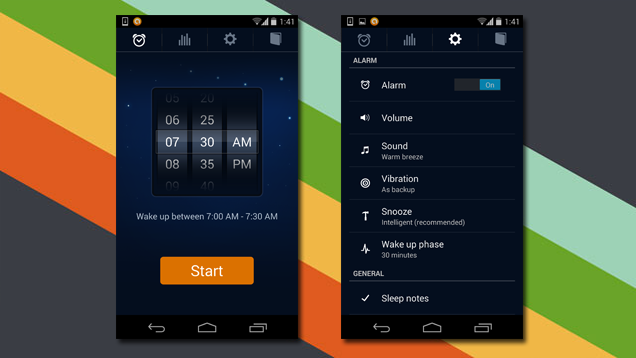20 Jun 2014
By Belle
Android finally gets Sleep Cycle and Fuelband apps: Quantified Self weekly links
Hardware
Robin promises "automation and insights for your office" by connecting to rooms in your building. The setup uses sensors to detect people and things in each room, helping you track who's attending meetings and locate coworkers around the building.
Apps
Sleep Cycle: now on Android

- Focus: achieve one goal per day [iOS]
- Chronos: automatically track how you spend your time [iOS, Android]
News
Nike+ Fuelband app finally available on Android
Although it seemed like Nike was winding down work on the Fuelband when they laid off Fuelband employees earlier this year, they've just released the Fuelband app for Android—finally.
Articles
From cable news to the nation’s great newspapers, there is a tacit understanding that in fitness stories you and I want to hear variations on exactly one theme: that a just-published research paper in a scientific journal identifies a revolutionary new three-and-a-half minute workout routine guaranteed to give you the body of an underwear model.
Unfortunately, there is no secret answer to losing weight, even from the latest scientific studies.
The human body is an adaptation machine. If you force it to do something a little harder than it has had to do recently, it will respond — afterward, while you rest — by changing enough to be able to do that new hard task more comfortably next time. This is known as the progressive overload principle.
If you pay too much attention to stories about exercise research, you’ll stay bewildered; but if you trust the practical knowledge of established athletic cultures, and keep your eye on the progressive overload principle, you will reach a state of clarity.
- Quantified Kids: Researchers Test Fitness Trackers in Youngsters
- How Wearable Tech Is Changing Exercise Research
- Fitness Tracker Fury (and which one I chose)
Image credits: Robin, Lifehacker
Subscribe Keep up to date with the Exist blog. Delivered to your inbox.